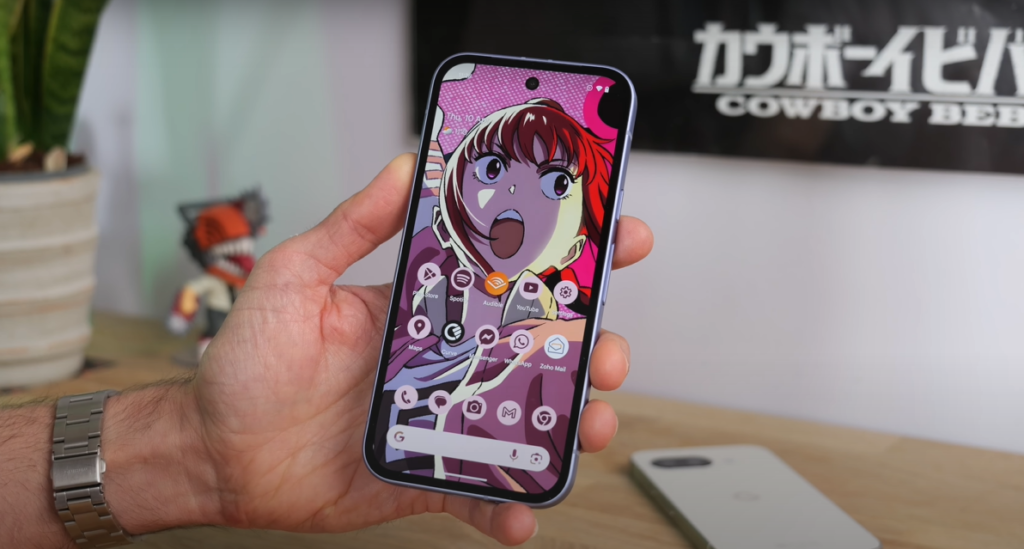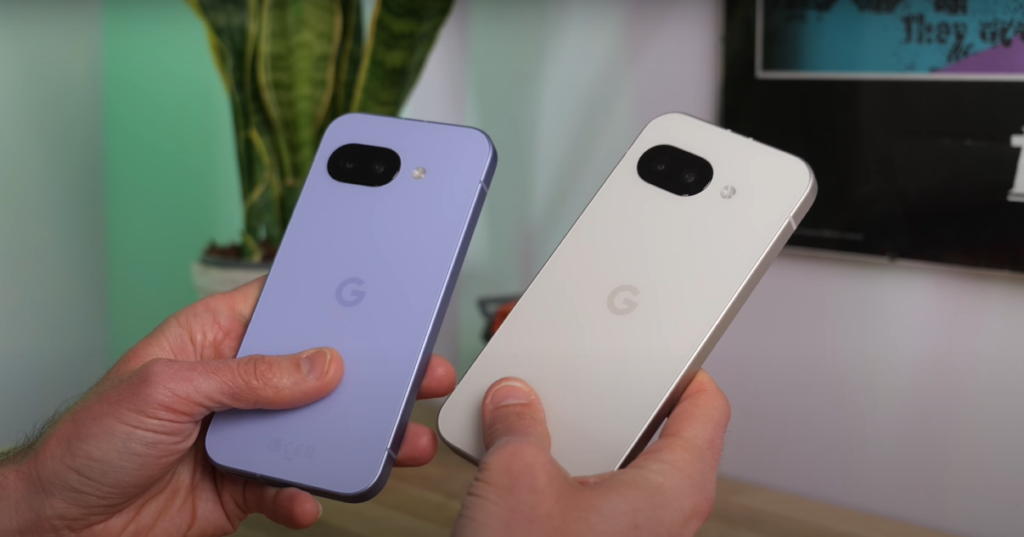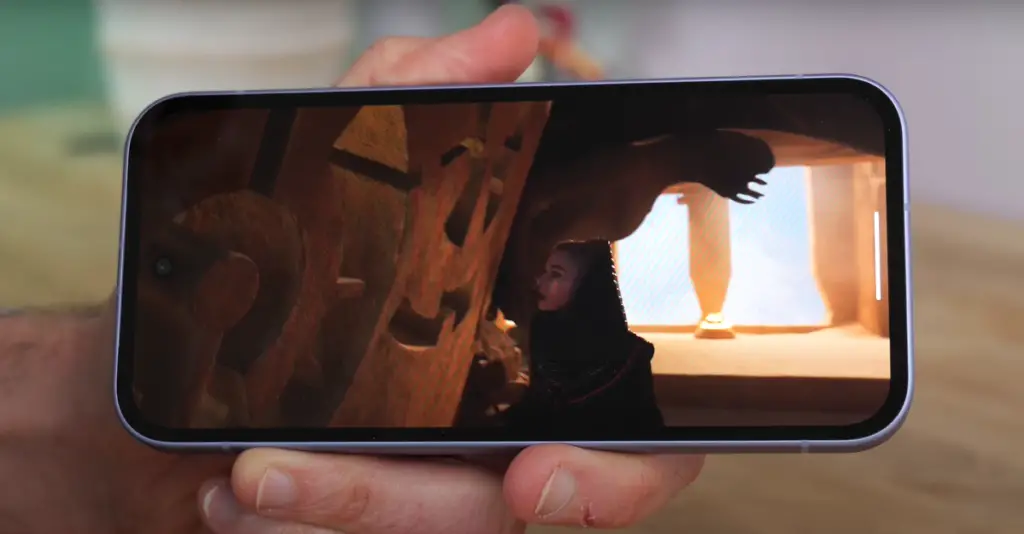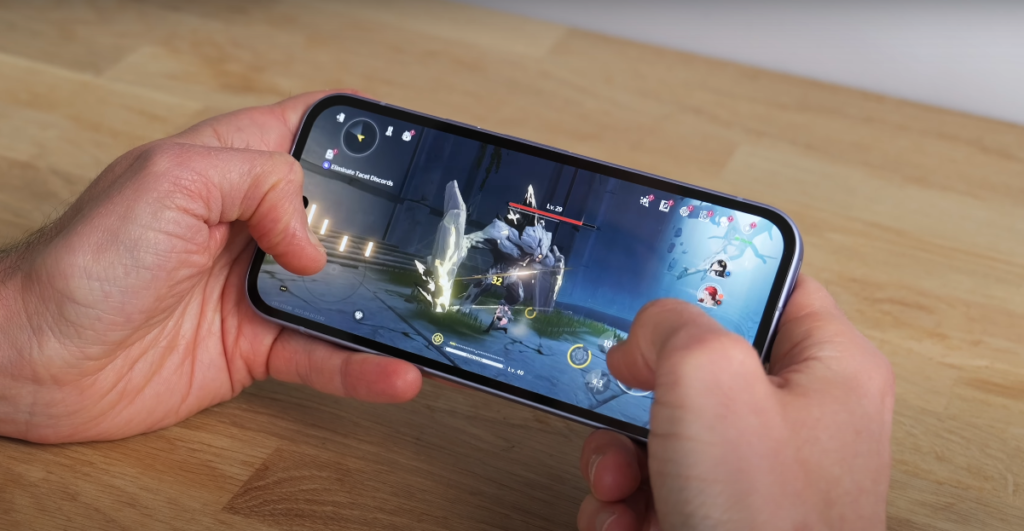Google Pixel 9a Review: Unboxing, Camera, Gaming & More—What’s New vs. Pixel 8a?
Hey, tech fans! The Google Pixel 9a finally landed on April 10, 2025, and it’s a mid-range contender priced at ₹49,999 ($499 in the US, £559 in the UK). With a sleek new design, upgraded battery, and Google’s signature camera magic, it’s pitched as a worthy successor to the Pixel 8a. I’ve unboxed it, tested its gaming chops, snapped photos, and pushed it through India’s chaotic daily grind—dust, crowds, and all.


Unboxing the Pixel 9a: What’s in the Box?
The Pixel 9a arrives in a minimalist box—Google’s eco-friendly vibe intact. Inside, you’ll find:
- The Pixel 9a (Iris, Peony, Obsidian, or Porcelain)
- A USB-C to USB-C cable
- A SIM ejector pin
- A safety, warranty, and regulatory guide
No charger, folks—Google’s ditched it like last season’s trends. At 185.9 grams, it’s light in hand, and the 100% recycled aluminum frame feels sturdy. First impression? It’s a compact beauty, but the flat design shift from the 8a’s curves stands out. Let’s unpack what’s new!
Design: Flat, Fresh, and Pocket-Friendly
The Pixel 9a grows to a 6.3-inch display (up from 6.1 inches on the 8a), but slimmer bezels keep it pocketable, unlike the 8a’s chunkier borders. I measured it: 150.8mm tall, a tad bigger but manageable. The flat front, back, and edges replace the 8a’s rounded charm—less comfy, but no wobble on tables thanks to a 1mm camera bump. Goodbye, the iconic Pixel camera bar has been replaced by a subtle dual-lens setup. It’s a love-it-or-hate-it change; I’m still warming up.
The Gorilla Glass 3 front (the same as 8a) disappointed—there was no upgrade to 7i here. The 81% recycled plastic back in Iris (a purple-blue stunner) feels smooth and resists fingerprints. The IP68 rating (up from IP67) means deeper, longer water dips—perfect for India’s monsoons. At ₹49,999, it’s a durable, stylish shift.
Vs. 8a: Slimmer bezels, flatter design, better water resistance—less ergonomic, though.
Display: Bigger, Brighter, Smoother
The 6.3-inch Actua pOLED rocks 1080×2424 resolution (422 PPI), 120Hz refresh, and 2700 nits peak brightness—a leap from the 8a’s 2000 nits. I tested it under Mumbai’s harsh sun—readable even with shades on. Streaming Dune on Netflix in HDR10, the contrast popped—deep blacks, crisp whites. The 24-bit color depth shines for animations, too.

No LTPO (unlike flagships), so it doesn’t drop to 1Hz on always-on mode—battery takes a hit there. No PWM dimming specs either—flicker-sensitive folks, test it first. Still, for ₹49,999, this display beats the Realme Narzo 80 Pro’s 90Hz OLED.
Vs. 8a: Bigger screen, brighter peak—same silky 120Hz smoothness.
Performance: Tensor G4—Solid, Not Stellar
The Tensor G4 chipset (with Titan M2 security) powers the 9a, paired with 8GB RAM (128GB or 256GB options). Everyday use? Silky—apps like WhatsApp and Chrome flipped instantly. I ran AnTuTu—scored ~750,000, a modest bump from the 8a’s ~700,000. Multitasking 12 apps? No sweat.

Gaming’s where it stumbles. I maxed Wuthering Waves—dropped from 60 FPS to 20-30 FPS during chaos. BGMI on HDR Ultra ran smoother at 60 FPS, but rivals like the Poco F7 Pro’s Snapdragon 8 Gen 3 crush it for intensive titles. Heat? Warm after an hour, not scalding—cooling’s decent.
Vs. 8a: Same Tensor G4, no raw power leap—still snappy for daily use.
Software: Android 15 with AI Smarts
Out of the box, it’s Android 15 with 7 years of OS updates (till 2032)—Google’s gold standard. The UI’s clean, customizable—lock screen tweaks galore. Gemini AI handles queries, but no free Gemini Advanced (unlike Pixel 9). Circle to Search worked flawlessly—circled a saree on-screen, got shopping links. Theft Protection locks it if snatched—tested it, felt secure.
Sadly, no Pixel Screenshots app (a 9-series gem)—a bummer for my forgetful brain. Minor bugs—like a glitchy notification panel—are fixed with a reboot. For India’s privacy-conscious crowd, the Titan M2 and face unlock (banking-ready) are clutch.
Vs. 8a: Same long support, more AI perks—misses some 9-series exclusives.
Battery: A 5,100mAh Beast
The 5,100mAh battery is a big jump from the 8a’s ~4,500mAh. I got 7-9 hours of screen-on time—gaming, streaming, calls—ending with 40% left. Wuthering Waves drained 20% in an hour; lighter use stretched it to two days. 23W wired charging (up from 18W) hit 50% in 25 minutes—slow compared to 80W mid-rangers. 7.5W Qi wireless is a bonus, but no Battery Share for accessories.
Vs. 8a: Bigger capacity, slightly faster charging—wireless stays sluggish.
Camera: Pixel Magic, Macro Twist
The 48MP Quad PD main sensor (OIS) and 13MP ultrawide match the 8a’s setup, but software tweaks shine. Daylight shots? Crisp, natural colors pop without oversaturation. Low-light pics with Night Sight? Detailed, rich—tested at dusk, impressed me. 8x Super Res Zoom stayed sharp—better than digital zooms on rivals. New Macro Focus (a 9a first) captured flower veins up close—fun, if niche.
Astrophotography nailed starry skies (well, London’s three stars)—a lockdown-era flex still holding strong. Add Me swapped me into group shots—AI stitching was seamless. The 13MP selfie cam shot 4K—stable, clear for Reels. Video? 4K 60 FPS rear and front—dual mics grabbed my voice cleanly.
Vs. 8a: Same lenses, smarter processing—Macro and Add Me are fresh perks.
Audio and Connectivity: Loud and Steady
The stereo speakers are punchy—they filled my room with Arijit Singh tracks. Bass lacks depth, but volume beats the 8a. Wi-Fi 6E and sub-6 5G held strong on Jio—no drops in crowded markets. eSIM support is travel-friendly—grabbed a local plan abroad, worked like a charm. No microSD slot—256GB max storage is your limit.
Vs. 8a: Same audio punch, upgraded Wi-Fi—eSIM stays clutch.
Pixel 9a vs. Pixel 8a vs. Rivals
| Feature | Pixel 9a | Pixel 8a | Poco F7 Pro |
|---|---|---|---|
| Price | ₹49,999 ($499) | ₹42,999 ($429) | ₹41,999 ($499) |
| Processor | Tensor G4 | Tensor G4 | Snapdragon 8 Gen 3 |
| Display | 6.3″ 120Hz pOLED | 6.1″ 120Hz OLED | 6.67″ 120Hz AMOLED |
| Battery | 5,100mAh, 23W | ~4,500mAh, 18W | 6,000mAh, 80W |
| Camera | 48MP OIS + 13MP | 48MP OIS + 13MP | 50MP OIS + 8MP |
| IP Rating | IP68 | IP67 | IP68 |
Vs. 8a: Bigger screen, battery, and IP68—same core power.
Vs. Poco F7 Pro: Lags in gaming and charging, wins on software and camera finesse.
Pros and Cons
Pros
- Bright, smooth 6.3-inch pOLED display
- Stellar 48MP camera with Macro and Add Me
- 5,100mAh battery lasts all day
- IP68 durability—built for India’s chaos
- 7 years of Android updates
Cons
- Tensor G4 stumbles in heavy gaming
- No charger in the box, slow 23W wired
- No Pixel Screenshots app
Who Should Buy It?
- Photography Buffs: Pixel-grade shots with new tricks.
- Software Lovers: Clean Android 15, long updates.
- Budget Buyers: Flagship vibes under ₹50,000.
- Travelers: eSIM and IP68 for the road.
Skip it if gaming’s your jam—Poco F7 Pro’s your pick.
Tips for Pixel 9a Users
- Camera Boost: Use Night Sight for dusk shots—stunning results.
- Battery Hack: Drop to 60Hz for lighter days—saves 10-15%.
- Storage Fix: Opt for 256GB if you shoot 4K vids.
- AI Play: Circle to Search for quick shopping or info grabs.
Verdict: Pixel 9a vs. 8a—Worth the Upgrade?
The Pixel 9a at ₹49,999 is a mid-range maestro—brighter display, bigger battery, and smarter cameras make it a step up from the 8a. Gaming’s not its forte, and charging lags behind rivals, but Google’s software polish and 7-year support shine. Available on Flipkart and Google Store—grab it if you crave Pixel perks without flagship prices. Upgrade from 8a? Yes, for the battery and design. What’s your take? Comment below!
₹49,999 ($499 globally)—available on Flipkart and Google Store.
Same 48MP OIS lens, but adds Macro Focus and Add Me—sharper, smarter shots.
Tensor G4 handles BGMI at 60 FPS; struggles with heavy titles like Wuthering Waves.
Author Section
Tech Spurt
Hey, tech aficionados! I’m Chris Barraclough, the chap behind Tech Spurt, serving up in-depth reviews and unboxings of smartphones, laptops, and gadgets. With 15+ years as a UK tech journalist—TechRadar, Mobile Choice—I live-test every device for real-world insights. Subscribe for the good stuff—let’s geek out!

